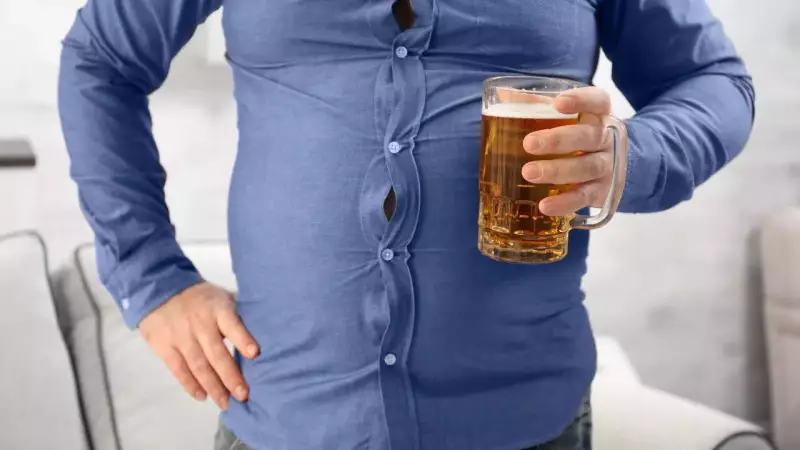
That protruding beer belly is far more than a simple cosmetic issue. It's a visible sign of internal health risks, primarily driven by the accumulation of a dangerous type of fat. Recent insights from health and fitness experts reveal how excessive alcohol consumption directly contributes to this problem, impacting everything from your waistline to your athletic performance.
The Science Behind the Beer Belly
Excess alcohol consumption frequently leads to fat building up around the abdomen. This is known as visceral fat, which doesn't just sit under the skin but surrounds internal organs like the liver and intestines. This specific fat deposition is a significant risk factor for developing metabolic syndromes and heart problems.
Alcohol itself is a dense source of energy, containing seven calories per gram. When you drink, your body identifies alcohol as a toxin and prioritizes its breakdown over burning stored fats and carbohydrates. This metabolic shift means that the calories from your drinks, and often the high-calorie foods consumed alongside them, are much more likely to be stored as fat.
Over time, this process encourages visceral fat accumulation, creating the classic beer belly. This fat is particularly concerning because it's biologically active, releasing compounds that can increase bloating and pose long-term health risks.
How Alcohol Sabotages Fitness Goals
Fitness coach Eric Roberts recently highlighted these effects in an Instagram reel. He explained that because the body treats alcohol as a poison, it halts essential processes like fat burning and muscle building to remove it. Alcohol adds empty calories on top of your regular food intake, creating a perfect storm for weight gain, especially around the midsection.
Roberts emphasizes that cutting back on alcohol can significantly accelerate fat loss, improve muscle growth, and make it easier to maintain a calorie deficit. His advice confirms that small, mindful adjustments to drinking habits can yield noticeable improvements in body composition.
Alcohol's Direct Impact on Muscle Recovery
The damage extends beyond fat storage. According to the National Academy of Sports Medicine, alcohol severely disrupts muscle development. It interferes with protein synthesis, the critical process through which the body repairs and builds new muscle tissue after exercise.
Research shows that consuming approximately 1.5 grams of alcohol per kilogram of body weight after a workout—roughly eight drinks for a 160-pound person—can reduce muscle protein synthesis by a staggering 37%. Even if you consume protein, alcohol continues to suppress the signals that trigger muscle growth.
Furthermore, alcohol creates a hostile hormonal environment for fitness. It lowers testosterone levels while increasing cortisol, a stress hormone that promotes tissue breakdown. Levels of growth hormone and luteinizing hormone, both vital for recovery, are also reduced. In men, estrogen levels may rise, leading to additional metabolic complications.
Finding a Balance: How Much is Too Much?
Moderation is the key to balancing alcohol intake with fitness aspirations. Studies indicate that consuming up to 0.5 grams of alcohol per kilogram of body weight has a minimal impact on muscle recovery. This translates to about two drinks for a 120-pound individual or three drinks for someone weighing 180 pounds.
However, higher intakes, particularly 1.5 to 2 grams per kilogram, significantly impair muscle growth and boost fat storage around the abdomen. Even occasional overconsumption can set back strength gains and make healthy weight management more challenging. Mindful drinking is therefore crucial for preserving muscle, reducing belly fat, and supporting overall metabolic health.
Disclaimer: This article is for informational purposes only and should not be considered medical advice. Please consult a healthcare professional before making any changes to your diet, medication, or lifestyle.






